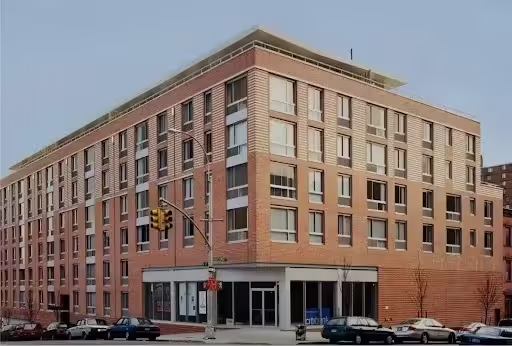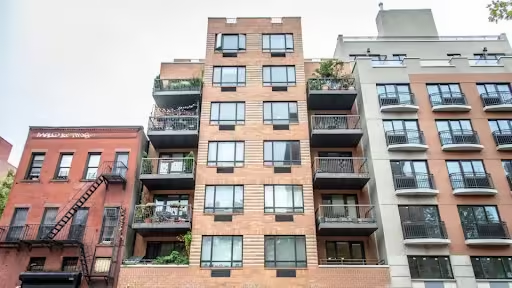Long Island City Property Management
Understanding Long Island City Property Management For Condos And Co-ops
Long Island City (LIC) has rapidly grown into one of New York City’s most dynamic residential areas, with a skyline dominated by glass condominium towers alongside cooperatives that reflect the neighborhood’s history and evolution. This unique blend creates both opportunities and challenges for board members tasked with ensuring that their buildings remain safe, compliant, and financially sound.
Effective Long Island City Property Management extends far beyond responding to maintenance requests. It requires balancing the day-to-day needs of residents with long-term planning that protects property values and ensures compliance with New York City’s strict regulatory requirements. From coordinating preventive maintenance schedules to managing capital improvements, boards need structured oversight that keeps operations efficient while avoiding costly emergencies.
Another essential element is regulatory navigation. LIC condos and co-ops face obligations under laws such as Local Law 11 (façade safety inspections) and Local Law 97 (energy efficiency and emissions reductions), along with ongoing requirements like elevator certifications, boiler inspections, and fire safety compliance. Property managers must stay ahead of these deadlines, working with engineers, expeditors, and city agencies to ensure filings are accurate and timely.
Financial stewardship is equally critical. Strong property management means providing boards with clear financial reporting, reserve fund planning, and forward-looking budget strategies. This helps buildings prepare for both routine expenses and larger projects, such as lobby renovations or roof replacements, without unexpected financial strain on owners.
Successful management in Long Island City requires an understanding of community culture. Every building has its own rhythm, shaped by its board, owners, and amenities. Some communities value extensive service and communication, while others prefer streamlined oversight. A strong property management approach adapts to these differences while ensuring that all operational, financial, and compliance responsibilities are met.

Compliance And Regulatory Oversight In Long Island City
Condominiums and cooperatives in Long Island City operate under some of the most demanding compliance standards in New York City. For boards, staying on top of these obligations is not optional; it’s essential for protecting both residents and the property’s long-term value. Every building must meet a series of recurring deadlines, ranging from Local Law 11 façade inspections, which ensure exterior safety, to Local Law 97 emissions mandates, which require significant planning for energy efficiency and sustainability. Beyond these high-profile regulations, boards must also manage boiler certifications, elevator inspections, sprinkler and standpipe testing, and fire safety system compliance, each carrying its own filing schedules and documentation requirements.
At HPM, we provide a structured compliance strategy designed specifically for condos and co-ops in Long Island City. Our team maintains a master calendar of all regulatory deadlines, eliminating the risk of missed filings and last-minute scrambles. We coordinate directly with engineers, expeditors, and licensed consultants to handle inspections, prepare reports, and file documents accurately and on time. For boards, this approach not only reduces the stress of navigating complex city rules but also safeguards against fines, violations, and legal exposure.
Equally important, we translate technical requirements into clear, board-friendly updates. Instead of overwhelming board members with codes and citations, we provide concise explanations of what needs to be done, when it must happen, and what the potential financial impact will be. This allows boards to make informed decisions about budgeting, reserve planning, and capital improvements while staying confident that the property remains in good legal standing.
By combining proactive oversight with transparent communication, HPM ensures that Long Island City condos and co-ops meet every compliance obligation without sacrificing efficiency or peace of mind.
Financial Planning And Transparency For LIC Boards
For condominium and cooperative boards in Long Island City, financial stability is more than a back-office responsibility; it is the foundation that shapes every decision and safeguards the value of each owner’s investment. Effective Long Island City Property Management must include a strong financial strategy that balances day-to-day operational needs with long-term planning for capital improvements and compliance obligations.
At HPM, we support boards by delivering comprehensive monthly financial statements that go beyond simple income-and-expense tracking. These reports include detailed budget variance analysis, reserve fund activity, vendor payments, and cash flow projections, giving board members a complete picture of the building’s financial health. Transparency is central to this process. With our secure online platform, board members have 24/7 access to all financial records, invoices, and supporting documentation, ensuring that no detail is overlooked and no decision is made without the right information.
Financial planning also extends to reserve fund forecasting and long-term capital improvement budgeting. Projects such as lobby renovations, roof replacements, façade repairs under Local Law 11, or energy upgrades required by Local Law 97 require careful financial preparation. By mapping out expected costs over a three-, five-, or even ten-year horizon, we help boards avoid sudden shortfalls and minimize the need for unexpected special assessments.
Equally important is our focus on tax abatement opportunities and other financial incentives available to New York City properties. By identifying and applying for applicable abatements, we help reduce carrying costs for owners while maintaining the building’s financial strength.
This board-centered approach ensures that finances are not only accurate and transparent but also strategically aligned with the building’s goals. Whether a board prioritizes stable maintenance fees, a strong reserve fund, or major capital improvements, HPM provides the clarity, tools, and insight to support those objectives and keep operations stable and predictable year after year.

Maintenance And Capital Improvement Strategies
Managing residential properties in Long Island City requires a dual approach: keeping day-to-day operations seamless while planning for the major projects that shape a building’s long-term value. With LIC’s mix of modern luxury condominiums and historic cooperatives, property management must be both proactive and adaptive.
Routine and Preventive Maintenance: Smooth building operations begin with consistency. Routine inspections of HVAC systems, elevators, boilers, and fire safety equipment reduce the risk of sudden breakdowns. Seasonal tasks, such as snow removal, air conditioning tune-ups, or roof checks before winter, help protect infrastructure from damage and ensure resident comfort year-round. HPM develops custom preventive maintenance schedules tailored to each building’s age, condition, and amenities, giving boards confidence that smaller issues are resolved before they grow into larger, more expensive problems.
Capital Improvement Planning: While preventive care reduces emergencies, every building will eventually face large-scale projects. In Long Island City, that often means façade repairs under Local Law 11, energy retrofits under Local Law 97, roof replacements, or elevator modernizations. These capital improvements require careful coordination, clear financial forecasting, and structured oversight to minimize disruption to residents while protecting long-term value.
Vendor Selection and Oversight: For these projects, HPM works exclusively with licensed and insured contractors who have a proven record of delivering quality work in NYC. We solicit multiple bids to ensure competitive pricing, review vendor qualifications carefully, and negotiate terms that benefit the board. Once a vendor is selected, we provide hands-on supervision, attending walkthroughs, monitoring progress, and ensuring milestones are met on time and within budget.
Board Alignment and Transparency: Communication with the board is central to the success of any capital project. HPM provides detailed project timelines, budget breakdowns, and regular progress reports so that board members are never left in the dark. By maintaining transparency and offering clear recommendations, we allow boards to make informed decisions with confidence.
Balancing Short-Term Needs and Long-Term Goals: Ultimately, effective Long Island City Property Management means balancing immediate operational needs with strategic capital improvements. Preventive maintenance keeps daily life running smoothly, while structured planning ensures that major upgrades enhance both the building’s functionality and its long-term market value.
A Board-Centered Partnership In Long Island City
Every condominium and cooperative board in Long Island City has its own way of operating, and successful Long Island City Property Management must adapt to those differences. Some boards prefer highly detailed monthly reviews with in-depth financial breakdowns, project status reports, and compliance updates. Others work more efficiently with concise summaries paired with secure online access to essential records. At HPM, we tailor our communication and management style to match the culture, pace, and expectations of each board we serve.
Flexibility is at the heart of this partnership. We establish clear communication channels, whether through scheduled board meetings, quarterly planning sessions, or streamlined digital updates, so that information flows smoothly and board members always have what they need to make timely decisions. Our secure online portal provides 24/7 access to financial statements, maintenance logs, vendor contracts, and compliance records, allowing board members to review information at their convenience without waiting for requests.
We also believe that effective property management goes beyond reporting; it requires anticipation and proactive planning. By scheduling regular check-ins with condo and co-op boards, we can identify potential issues early, preventing them from turning into costly repairs or compliance risks. This forward-thinking approach is especially critical in New York City, where regulations such as Local Law 11 (façade inspections) and Local Law 97 (emissions standards) carry strict deadlines and significant penalties for non-compliance. Our team helps boards prepare capital improvement plans that align with Local Law 11 requirements, while also developing long-term energy strategies to meet Local Law 97 benchmarks. In addition, we guide boards through financial planning opportunities such as tax abatements, ensuring buildings maximize available incentives while maintaining stability and value. By combining compliance oversight with strategic foresight, we help boards stay ahead of their obligations and focus on long-term goals.
By aligning our property management strategies with the board’s priorities, HPM functions as an extension of leadership rather than just an outside service provider. This collaborative approach helps ensure financial stability, operational efficiency, and compliance, while also preserving the long-term value of each property in one of Queens’ most rapidly evolving neighborhoods.

FAQs on Long Island City Property Management
What does HPM specialize in?
HPM specializes in managing condominiums and cooperatives throughout Long Island City. By concentrating on these communities, we provide tailored guidance and dedicated support that helps boards and residents maintain well-run, thriving properties.
How does HPM help Long Island City boards stay compliant with NYC regulations?
We track all Local Law requirements (such as Local Law 11 and Local Law 97), coordinate inspections for boilers, elevators, and fire systems, and manage filings with DOB and HPD to keep properties fully compliant.
What type of financial reporting do LIC condo and co-op boards receive?
Boards receive detailed monthly financial statements, reserve fund tracking, and cash flow projections. All reports are accessible through our secure online portal for 24/7 transparency.
How does HPM approach maintenance and capital projects in LIC buildings?
We combine preventive maintenance schedules with structured capital improvement planning. From small repairs to large-scale projects, we work with vetted vendors and provide oversight from start to finish.
Why should a Long Island City condo or co-op board choose HPM over another management company?
HPM specializes in owner-occupied condos and co-ops, with a board-centered approach that emphasizes transparency, compliance, financial health, and proactive operations, ensuring both smooth daily management and long-term property value.
Reclaim Your Time and Reduce Stress with Professional NYC Property Management
Why choose professional property management services? For condo and co-op owners in NYC, HPM offers invaluable time and stress management. We handle all facets of property management, including maintenance and repairs, resident communication, and emergency response. This frees up your time and allows you to focus on your personal and professional life, knowing your property is in expert hands.

Simplify Property Ownership in NYC with HPM’s Full-Service Management
If you’re seeking a dependable full-service property management company to ease the burdens of property ownership in New York City, HPM is here to help. Our team of dedicated New York property management professionals provides exceptional services, making us the smart choice for managing your rental buildings, co-op associations, and condo associations. At HPM, we know that property management can be time-consuming and complex, which is why our innovative strategies offer a distinct advantage in the industry.